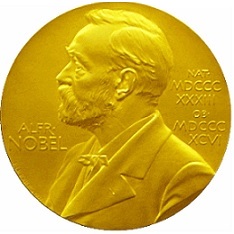Bob Dylan’s Nobel win: a victory and failure in one
 Predictable scorn has been poured on the choice of Bob Dylan as this year’s winner of the Nobel prize laureate for literature.
Predictable scorn has been poured on the choice of Bob Dylan as this year’s winner of the Nobel prize laureate for literature.
One high-profile critic of the decision was writer Irving Welsh (a Dylan fan). He said he considered it an ‘ill conceived nostalgia award’ for someone whose best work is long behind them. Really? Doris Lessing and Harold Pinter, the most recent British winners, both won many decades after their masterworks. Like Dylan, both had continued to plough their own idiosyncratic furrows, but their major works were behind them by the time they were recognised.
The same for Dario Fo, another Nobel prize winner, who died the day Dylan got his award: his big hit, Accidental Death of an Anarchist, was almost thirty years old when he was awarded the prize.
So currency is not the argument; nor should it be. These authors are era-defining voices and, as with other Nobel prize awards (notably physics), it often takes decades to understand the significance of the contribution. Perhaps then, the argument is over whether his work is – to put it bluntly – poetry.
Leonard Cohen, when accused on the radio of trying to pass off his lyrics as poetry, had a magnificent response: “I have written poems, madam,” he said. “And I know the difference.”
What strikes many in the literary world is that Dylan’s lyrics – era-defining as they may be – do not stand alone as poems. They could not sit on the page and stand the scrutiny of a Heaney verse, for example. (It’s interesting to note that Camille Paglia argues otherwise, and cites Desolation Row as being more powerful on the page than heard in song.)
But does that suggest only poetry that’s ostensibly for the page can be taken seriously? Much of poetry has moved away from the page into performance, often with the aim of radicalising and inspiring the listeners. How is that to be considered? A number of poets (Lynton Kwesi Johnson and Gil Scott-Heron to name just two) have migrated towards musical accompaniment to help get their message across and, of course, much ancient Greek poetry was accompanied by a lyre (hence ‘lyric’), and was never intended for the page.
So Dylan absolutely accords with the tradition of literature, and meets all the criteria usually required by the committee. Except for one important and – for the publishing world – unforgivable way: his work is not published primarily in book form.
This, I suspect, is the nub of the issue as far as many protests are concerned. The publishing world, more so than most businesses, is event-driven. Christmas is a critical time, of course, but the industry gets regular shots in the arm from the cycle of awards: the Booker, Pullitzer, Orange, and so on allow the winners and shortlisted candidates to maximise their sales potential, and help the publishers to make hay.
The Nobel – a once in a lifetime award – is the biggie. Alice Munro, the 2013 winner, asked whether winning the prize would increase her book sales. The answer, emphatically, was “yes”. By around 4,300% in North America, it turned out. Lessing saw rises of over 2,000% in her first week of sales post-Nobel.
Of course, we are talking about relatively small numbers: thousands of books rather than millions. And that is the point. With the rare exception, the prize has been used to – ahem – en-Nobel the sort of relatively obscure but worthy writer who has typically been nursed and succoured by specialist independent publishers. The last three prize winners have been first published in English by WW Norton, Aidan Ellis, and Ryerson Press. Throughout his career, Samuel Beckett stayed loyal to John Calder Publishers, the house which picked up his first book after 40-odd rejections. Beckett’s oeuvre – and the halo of his prize – kept Calder going for many years.
The boost provided to these small houses, negligible by the standards of the publishing conglomerates, is a small reward for many patient years of nurture and hunch-based punts. These business often live a precarious existence: of the four publishers mentioned above, only WW Norton still exists as an independent imprint. What little spare money they make is usually reinvested in their catalogue. I imagine that Dylan’s laureateship will make little difference to the kind of bands that his record label, Columbia, will sign. And, if the prize is at least partly about creating a legacy for literature, then in this at least it will have failed this year.